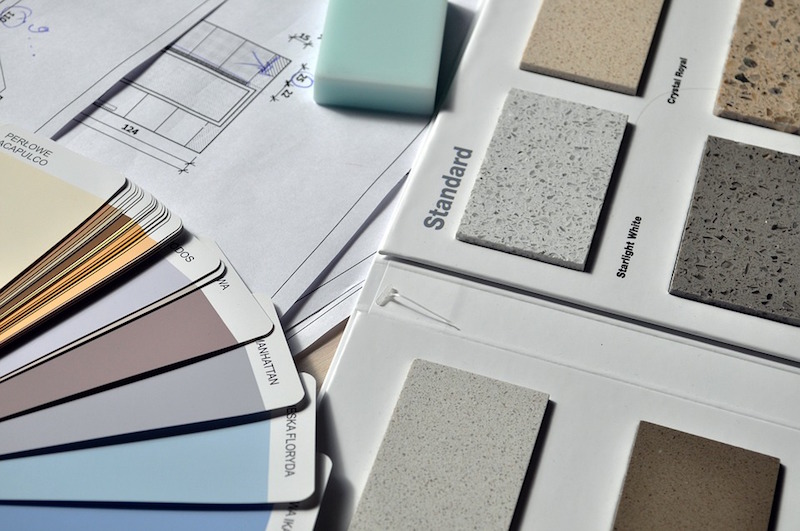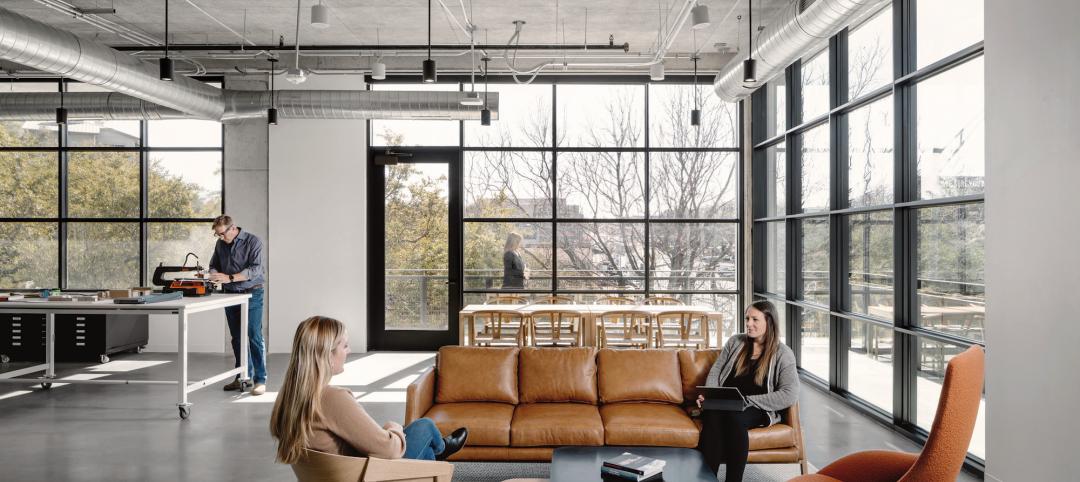International design firm Perkins Eastman and EwingCole announced the release of their new joint white paper “Where Are We Now?: Elevating Design Practice through Design Research.” The paper is co-authored by Emily Chmielewski, EDAC, Associate and Senior Design Researcher at Perkins Eastman, and Nicholas Watkins, Ph.D., Director of Research at EwingCole.
The paper takes an in-depth look at the current state of the design research field, dissects the many challenges researchers face, and contemplates broad solutions for advancing the practice of design research for the overall betterment of the architectural design field.
In March 2016, the Perkins Eastman and EwingCole research teams, led by Chmielewski and Watkins, developed and instituted a comprehensive online survey of 29 questions, in partnership with the Environmental Design Research Association (EDRA). The survey was available online for three weeks and was completed by a mix of students, educators, designers, and design research professionals. The results of that survey were then presented at the 47th Annual EDRA Conference (EDRA47), in Raleigh, NC.
The value of credibility of design research, research methods, and knowledge, sharing, and sustainability of design research in practice are a few of the topics the survey’s questions focused on.
At EDRA47, the teams engaged in conversation with various conference attendees about the many challenges related to conducting design research as well as solutions for promoting the incorporation of design research in design delivery. The survey’s findings, combined with input from the EDRA conference, informed the content produced for “Where Are We Now?”
According to Watkins, “A key challenge for all researchers in practice is to communicate our studies’ findings in such a way that attracts the attention of designers and clients, as well as conveys insights that can effectively impact the design industry. One of our intentions in writing this paper was to help our industry peers in tackling those challenges, and consequently, finding more receptive audiences for their important work.”
The entire white paper is available for free download at www.perkinseastman.com/white_papers and EwingCole - Where Are We Now Whitepaper.
Related Stories
Hotel Facilities | Jul 26, 2023
Hospitality building construction costs for 2023
Data from Gordian breaks down the average cost per square foot for 15-story hotels, restaurants, fast food restaurants, and movie theaters across 10 U.S. cities: Boston, Chicago, Las Vegas, Los Angeles, Miami, New Orleans, New York, Phoenix, Seattle, and Washington, D.C.
Sustainability | Jul 26, 2023
Carbon Neutrality at HKS, with Rand Ekman, Chief Sustainability Officer
Rand Ekman, Chief Sustainability Officer at HKS Inc., discusses the firm's decarbonization strategy and carbon footprint assessment.
Sports and Recreational Facilities | Jul 26, 2023
10 ways public aquatic centers and recreation centers benefit community health
A new report from HMC Architects explores the critical role aquatic centers and recreation centers play in society and how they can make a lasting, positive impact on the people they serve.
Multifamily Housing | Jul 25, 2023
San Francisco seeks proposals for adaptive reuse of underutilized downtown office buildings
The City of San Francisco released a Request For Interest to identify office building conversions that city officials could help expedite with zoning changes, regulatory measures, and financial incentives.
Designers | Jul 25, 2023
The latest 'five in focus' healthcare interior design trends
HMC Architects’ Five in Focus blog series explores the latest trends, ideas, and innovations shaping the future of healthcare design.
Urban Planning | Jul 24, 2023
New York’s new ‘czar of public space’ ramps up pedestrian and bike-friendly projects
Having made considerable strides to make streets more accessible to pedestrians and bikers in recent years, New York City is continuing to build on that momentum. Ya-Ting Liu, the city’s first public realm officer, is shepherding $375 million in funding earmarked for projects intended to make the city more environmentally friendly and boost quality of life.
Market Data | Jul 24, 2023
Leading economists call for 2% increase in building construction spending in 2024
Following a 19.7% surge in spending for commercial, institutional, and industrial buildings in 2023, leading construction industry economists expect spending growth to come back to earth in 2024, according to the July 2023 AIA Consensus Construction Forecast Panel.
Hotel Facilities | Jul 21, 2023
In Phoenix, a former motel transforms into a boutique hotel with a midcentury vibe
The Egyptian Motor Hotel’s 48 guest rooms come with midcentury furnishings ranging from egg chairs to Bluetooth speakers that look like Marshall amplifiers.
Biophilic Design | Jul 20, 2023
Transform your work environment with biophilic design
Lauren Elliott, Director of Interior Design, Design Collaborative, shares various ways biophilic design elements can be incorporated into the office space.
Office Buildings | Jul 20, 2023
The co-worker as the new office amenity
Incentivizing, rather than mandating the return to the office, is the key to bringing back happy employees that want to work from the office. Spaces that are designed and curated for human-centric experiences will attract employees back into the workplace, and in turn, make office buildings thrive once again. Perkins&Will’s Wyatt Frantom offers a macro to micro view of the office market and the impact of employees on the future of work.

















